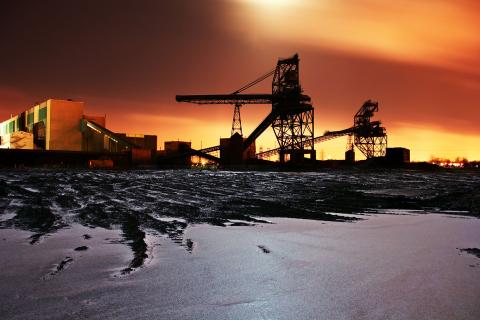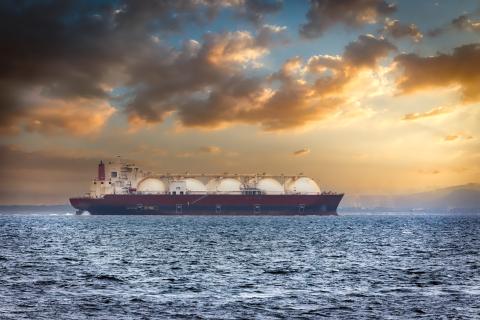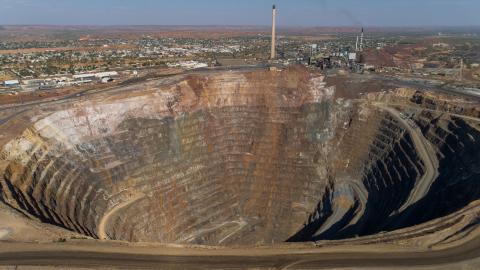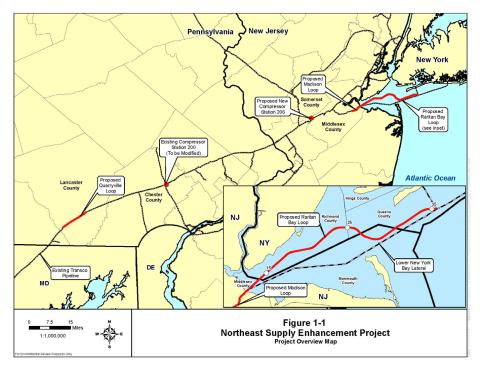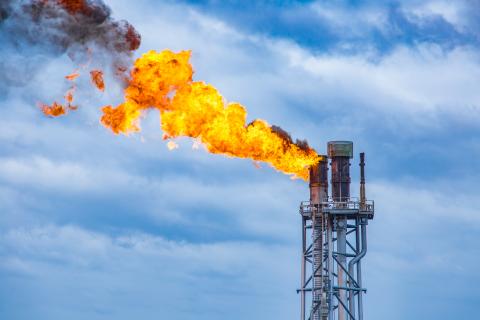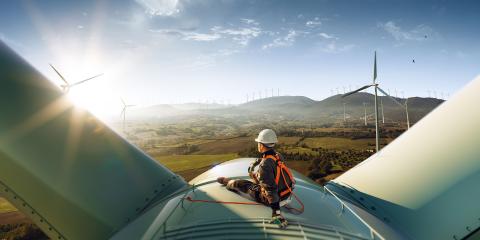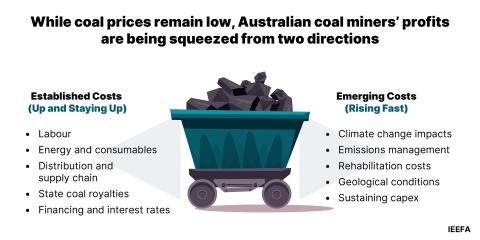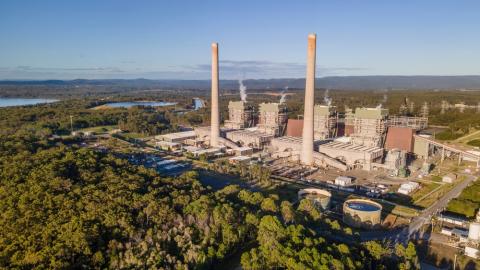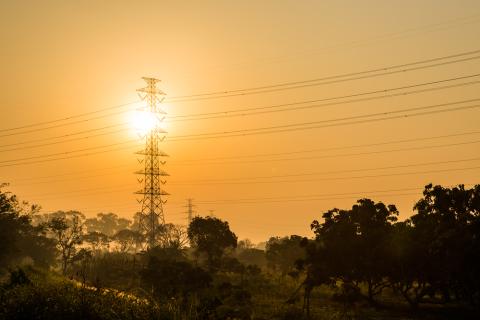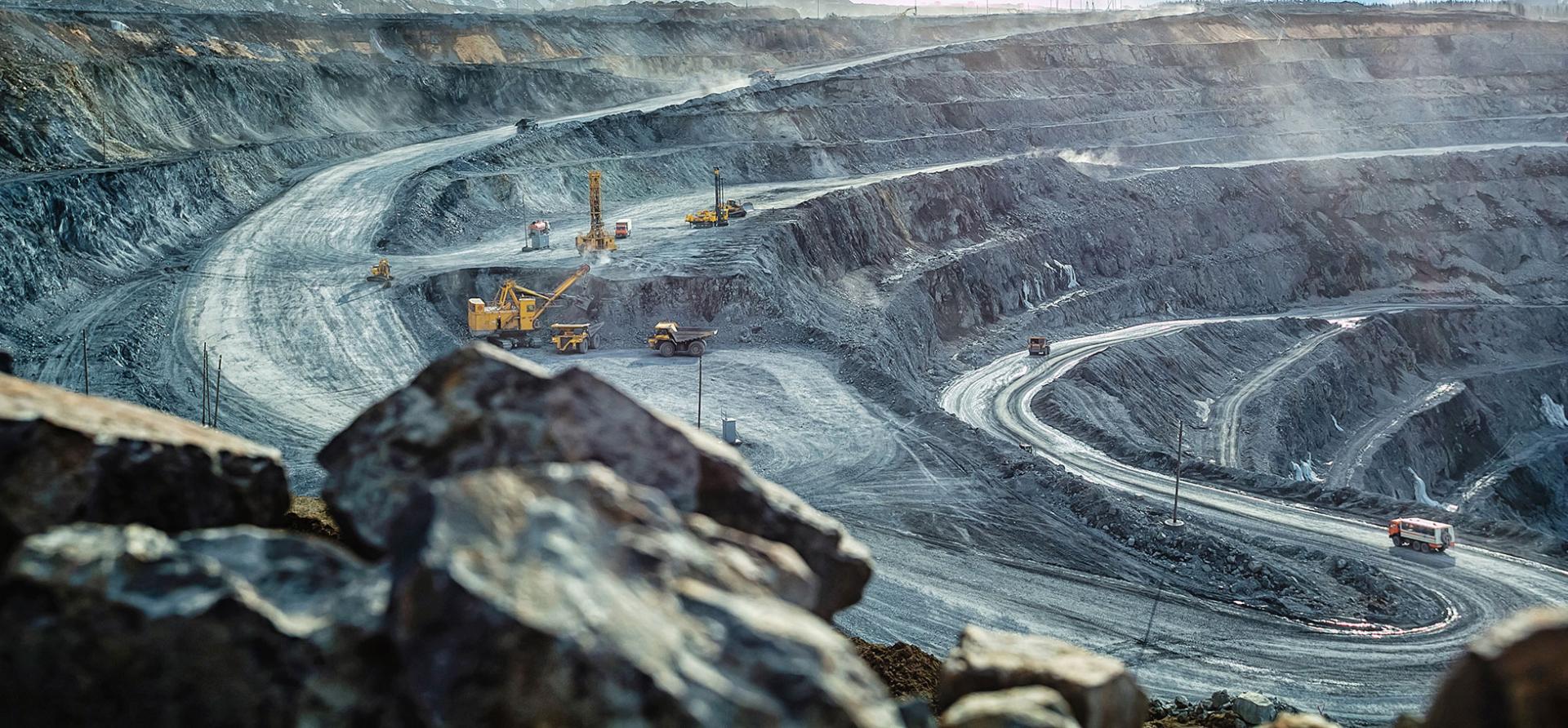
Key Findings
Whitehaven Coal has acquired two metallurgical coal mines from BHP Mitsubishi Alliance (BMA).
The significant interest in the acquisition of the Daunia and Blackwater mines signals that mining operators remain overly optimistic about long-term demand for Australian metallurgical coal.
Shareholders increasingly want to see an end to coal asset expansion and instead want existing mine capacity managed down and cash returned.
In the long term, metallurgical coal exports are more vulnerable than mining operators claim. Green steel technology is advancing faster than expected, and major steel producers are increasing their decarbonisation commitments.
Australia’s largest mining company BHP has confirmed the sale of two of its jointly owned metallurgical coal assets, the Daunia and Blackwater mines in Queensland, to Whitehaven Coal, despite an opposition campaign by one of Whitehaven’s investors – Bell Rock Capital Management. Whitehaven acquired 100% of the Daunia and Blackwater mines for an aggregate cash consideration of US$3.2 billion, subject to customary adjustments.
BHP owned a 50% share in both mines in a joint venture with Mitsubishi Development known as the BHP Mitsubishi Alliance (BMA). BMA is Australia’s largest producer and supplier of seaborne metallurgical coal. The sale represents the continuation of BHP offloading its intermediate-quality coking coal mining assets while retaining those that produce higher-quality coking coal. The Daunia and Blackwater sale follows BHP’s earlier divestment in 2021, selling its 80% share in the South Walker Creek and Poitrel metallurgical coal mines to Stanmore Resources for about A$1.82 billion.
BHP cited the long-term market outlook for metallurgical coal, inflationary pressures, the Queensland royalty hike and difficulty competing for capital as drivers in its decision to offload the Daunia and Blackwater mines.
BHP’s Australian coal mining operations are competing for capital against its other ongoing iron ore, copper and nickel mining projects both in Australia and overseas. Despite the sale, BHP retains a long-term commitment to metallurgical coal mining in Australia. BHP has applied to extend the life of Peak Downs – Australia’s largest metallurgical coal mine as measured by recoverable reserves – which could see it operate for an additional 93 years.
Shareholders increasingly expect an end to coal asset expansion
London hedge fund Bell Rock Capital Management, which controls just under 5% of Whitehaven, was pushing to stop its acquisition of the two mines. In a letter to Whitehaven’s board, Bell Rock’s chief investment officer, Michael O’Mara, said the mines were “very high-risk investments” located “in an unattractive jurisdiction with the highest coal taxing regime in the world”.
In response, Whitehaven asserted that it maintained strong shareholder support for its acquisition of Daunia and Blackwater. Referring to a recent shareholder perception survey, Whitehaven’s chief executive Paul Flynn stated that: “There is a diversity of views there, but there is strong support for us to continue to grow.”
The campaign from Bell Rock Capital signals that shareholders will increasingly want to see an end to indefinite coal asset expansion.
Bell Rock Capital campaigned against the purchase of the two mines stating that the valuation given by UBS was excessive. UBS analysts valued the two mines at US$3.3 billion. Bell Rock Capital stated that “Given the enormous cash balance held by Whitehaven, it is easy to make a deal look earnings accretive, but this approach can still be value destructive for shareholders, which is our strong concern.”
The campaign from Bell Rock Capital signals that shareholders will increasingly want to see an end to indefinite coal asset expansion, and that they will instead want existing mine capacity managed down and cash returned.
Misplaced optimism about met coal demand
The Daunia and Blackwater mine sales attracted significant interest, signalling that companies’ appetites for increasing their share of metallurgical coal assets remains strong. Alongside the winning bid made by Whitehaven, other shortlisted contenders for the mines included Yancoal, BUMA Australia (Indonesian mining contractor), Peabody Energy and Stanmore Resources. Additional interest was flagged by Coronado Global Resources, New Hope and JSW Group (Indian steelmaker).
Whitehaven’s acquisition of the Daunia and Blackwater metallurgical mines will ‘diversify’ its predominantly thermal coal mining portfolio, which currently only includes a relatively small production of semi-soft coking and PCI (pulverised coal injection) coal. This is a significant shift for Whitehaven’s mining portfolio, as thermal coal accounted for 94% of its sales volumes in FY2023. The acquisition supports Whitehaven’s strategy to grow its metallurgical coal mining assets for “a more balanced portfolio”.
Some mining companies are shifting to future materials for renewables, EVs
Highlighted previously by IEEFA, Teck Resources, a major Canadian metallurgical coal miner, stated in December 2022 that it will not develop further metallurgical coal capacity, instead focusing its efforts on copper. This followed statements from Australian mining company South32 that it won’t be investing in further metallurgical coal mines, instead focusing on future mining metals such as copper and zinc.
Concurrently, Baowu, China’s largest state-owned steel maker, is moving to exit the Queensland coking coal sector by selling its stake in the Eagle Downs coal mine as it works with Rio Tinto on trials using hydrogen as a partial substitute for coking coal. Baowu has signed agreements with Fortescue and Rio Tinto to investigate using Pilbara iron ore in DRI-based steelmaking in China, while Rio Tinto’s agreement will also investigate the possibility of low-carbon iron production in Australia.
Met coal export demand is more vulnerable than mining operators claim
In its March 2023 Resources and Energy Quarterly report, the Australian government’s Department of Industry, Science and Resources forecast that both world trade in metallurgical coal and Australian metallurgical coal exports would peak in 2026 at 317 million tonnes per annum (Mtpa) and 176Mtpa respectively, before declining through to 2028.
Australian metallurgical coal mining operators are looking to India to sustain export demand as China’s steel production declines. But India’s energy security concerns will steer it towards making steel with domestically produced green hydrogen as it gets cheaper. India is also seeking to diversify its metallurgical coal imports and increase its domestic metallurgical coal production. In FY2022 India sourced 70% of its 57Mt metallurgical coal imports from Australia; in FY2023 this decreased to 50%.
Green steel advancing fast amid increasing decarbonisation commitments
The International Energy Agency (IEA)’s 2023 update to its Net Zero Roadmap report reflects a growing emphasis on hydrogen-based ironmaking. In the 2023 update, the IEA decreased the share of carbon capture, utilisation and storage (CCUS) technology expected in iron production by 2050 from 53% to 37% and increased the hydrogen-based pathway from 29% to 44%. The report highlighted that the number of project announcements for hydrogen-based direct reduced iron (DRI) steel production has increased significantly since 2021, when only one was in development.
Fatih Birol, executive director of the IEA wrote in April this year that: “The project pipeline for producing steel with hydrogen rather than coal is expanding rapidly. If currently announced projects come to fruition, we could already have more than half of what we need in 2030 for the IEA’s net zero pathway.”
BlueScope Steel’s chief executive Mark Vasella noted last month that momentum in the steel industry to cut carbon emissions was moving faster than he had predicted just two years ago.
Japan’s second largest steelmaker, JFE Steel has announced it will replace one of the blast furnaces at its Kurashiki plant with an electric arc furnace (EAF) by 2028. This is the first announcement by one of Japan’s three major steel enterprises to electrify a blast furnace. It is expected to reduce carbon dioxide emissions by 75%.
The world’s second largest steel producer, Acelormittal is transitioning its Gijon steel plant to a DRI-EAF production route. The DRI will be the first of its kind in Spain, with EAF production planned before the end of 2025.
In Sweden, SSAB is the first steel producer to offer a scrap-based steel product in compliance with several near zero-emissions steel production thresholds, if claimed values are achieved. SSAB plans to deliver 40,000 tonnes of carbon-free steel in 2023 and to ramp up production to 100,000 tonnes in 2025; Volvo Group has already signed a delivery agreement. SSAB also plans to convert its entire Nordic steel production system in around 2030 to carbon-free production and has already invested SEK 6.2 billion in a new EAF and raw material handling in Oxelosund in Sweden.


